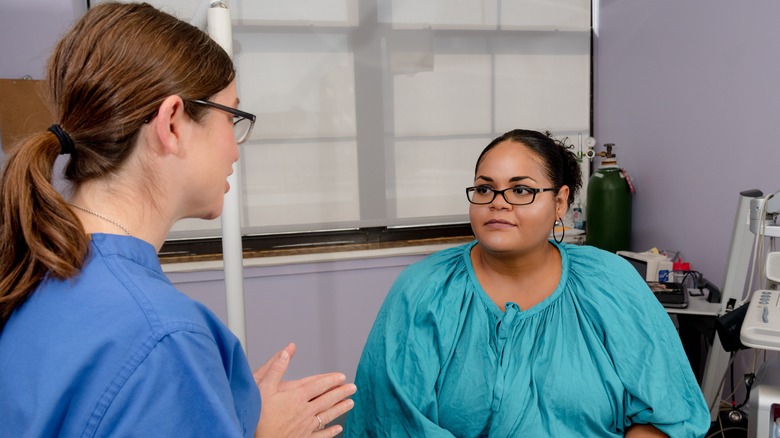Does An Abortion Affect Fertility?
If you've had an abortion or plan on having one in the near future, you may be wondering whether or not abortion can cause infertility. Since there's quite a bit of misinformation out there about the risks of abortion, it's important to set the record straight. But first, let's define the different types of abortion. According to Healthline, there are two main methods of abortion: medical and surgical. A medical abortion is an abortion that is induced through the use of medications. This involves a two-pill regimen of mifepristone and misoprostol, which you take to terminate a pregnancy up to 10 weeks of gestation.
A surgical abortion, on the other hand, is a medical procedure that is used to end a pregnancy and discard any remaining products of the pregnancy. As it turns out, there are a few different ways that physicians can perform a surgical abortion. One of the most common methods is known as vacuum aspiration, which can occur up to 16 weeks of gestation. Vacuum aspiration involves using gentle suction to remove the fetus and placenta from the uterus. Dilation and evacuation (D&E) is another common method of surgical abortion. This procedure can be performed after 14 weeks of gestation and involves dilating the cervix to surgically evacuate the uterus, removing both the fetus and the placenta.
There's no evidence that abortion causes infertility
While abortions carry risks like any other medication or medical procedure, there is no evidence that having either a surgical or medical abortion can affect your fertility and prevent you from becoming pregnant in the future, as per Self. "The procedure in and of itself does not affect [future] pregnancy," Dr. Mary Jane Minkin, a clinical professor of obstetrics and gynecology and reproductive sciences at Yale Medical School, told the publication. "The only issue is if there are complications."
Abortion is a very low-risk procedure, meaning the risk of developing any complications is pretty slim, according to The American College of Obstetrics and Gynecologists (ACOG). That being said, there is a small risk of infection, excessive bleeding, injury to internal organs, and incomplete abortion. However, it is highly unlikely that any complications will arise as a result of a safe and legal abortion. In fact, there are other factors that are much more likely to affect your fertility than abortion, including age, underlying medical conditions, and history of smoking (via Self).

